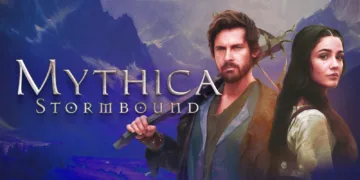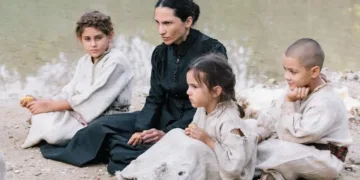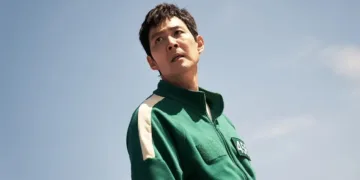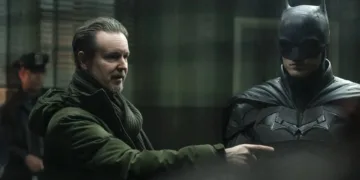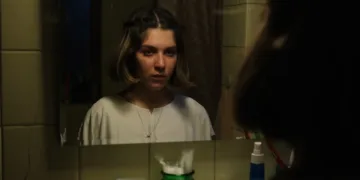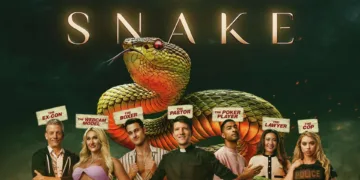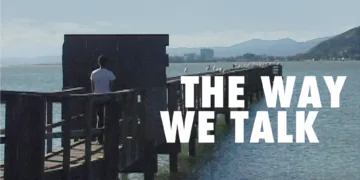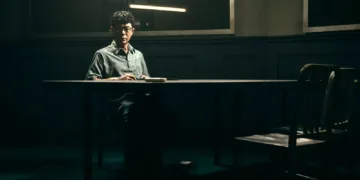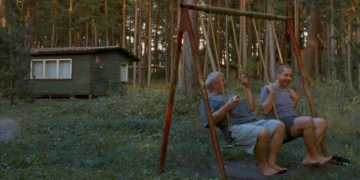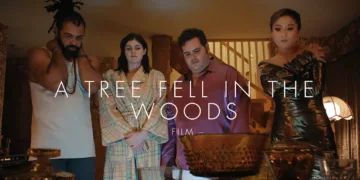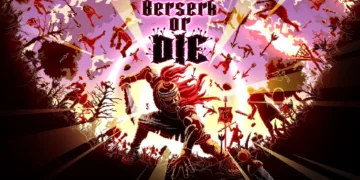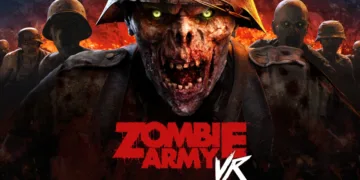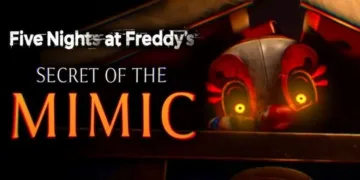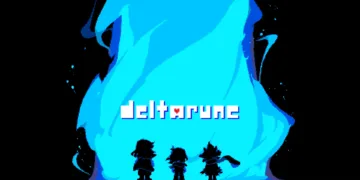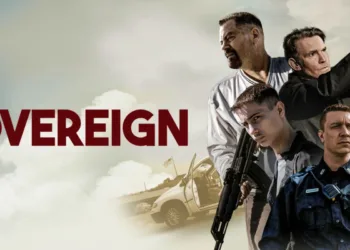After eight years of silence, the Mythica franchise emerges from dormancy with “Stormbound,” a sixth installment that feels both like a homecoming and a fresh start. This crowdfunded fantasy series, which began in 2014 with modest ambitions and D&D-inspired adventures, returns to a world forever changed by the climactic events of “The Godslayer.” Set nearly two decades after the defeat of the great evil Szorlok, we find ourselves in a fractured realm where victory’s aftermath has proven almost as devastating as the original threat.
The film makes a bold narrative pivot, abandoning the quest-driven structure of its predecessors for something more intimate and psychologically complex. Instead of sprawling adventures across magical landscapes, “Stormbound” confines itself to a single location—a remote inn where disparate travelers seek shelter from both literal and metaphorical storms.
This chamber piece approach, clearly inspired by Tarantino’s “The Hateful Eight,” transforms the fantasy genre into a vehicle for mystery and suspense. The shift feels both practical and purposeful, allowing the production to focus its limited resources while exploring deeper character dynamics. Newcomers can enter this world without extensive backstory, though franchise veterans will appreciate the careful threading of past events into present circumstances.
When Strangers Become Suspects
The film’s central mystery revolves around Mahitable Crow, a witch whose massacre of a nearby village sets the stage for mounting paranoia among the inn’s guests. Our protagonist, known simply as The Stranger (Will Kemp), arrives carrying mysterious cargo and harboring secrets that become increasingly vital as the night unfolds.
Kemp delivers a measured performance that anchors the film’s shifting allegiances, embodying the weathered pragmatism of a man who’s learned to survive in a broken world. His portrayal of the bounty hunter-apothecary hybrid feels authentic to this post-apocalyptic fantasy setting, where everyone needs multiple skills just to stay alive.
The ensemble cast populates the inn with familiar archetypes given fresh context by their shared trauma. Erid (Nate Morley), the sole survivor of Crow’s village attack, serves as both catalyst and emotional center, while Giblock (Joe Abraham) provides the grounding presence of the innkeeper with his own hidden depths. Arlin (Ryann Bailey) stands out among the supporting players, bringing nuance to what could have been a thankless servant role.
The film’s greatest strength lies in how these characters gradually reveal their true natures through mounting tension and mutual suspicion. The confined setting becomes a character itself, forcing interactions that might never occur in the open world. The dialogue, while occasionally heavy with exposition, serves the dual purpose of world-building and character development.
Each conversation peels back layers of post-war society, revealing how the defeat of ultimate evil has left survivors grappling with more mundane but equally dangerous threats. The whodunit elements maintain engagement through careful pacing of revelations, though some character motivations feel underdeveloped compared to the central mystery.
Crafting Magic on a Shoestring
Jake Stormoen’s directorial debut demonstrates impressive resource management, using the storm-bound inn setting to mask budgetary limitations while creating genuine atmosphere. The nighttime sequences particularly benefit from this approach, with darkness concealing the rougher edges of the computer-generated imagery. When daylight arrives for the climactic sequences, the purple smoke and lightning effects reveal their low-budget origins, but there’s something endearing about their practical imperfection that recalls the charm of 1980s fantasy films.
The production design excels within its constraints, creating an inn that feels lived-in and authentic to this harsh world. Costume and makeup work effectively establish character hierarchies and backgrounds without relying on flashy effects. Stormoen’s transition from actor to director shows promise, particularly in his handling of ensemble scenes where multiple characters must maintain distinct voices and motivations. His familiarity with the franchise’s world becomes an asset, allowing him to navigate the lore with confidence while making it accessible to newcomers.
James Schafer’s musical score deserves particular recognition for weaving themes from previous films into new compositions that enhance both continuity and emotional resonance. The sound design supports the claustrophobic atmosphere effectively, using the storm as both literal and metaphorical backdrop for the unfolding drama. The editing maintains tension throughout the confined timeframe, though some pacing issues emerge during the transition from mystery to action in the final act.
Fantasy’s New Frontier
“Stormbound” succeeds most impressively in its genre hybridization, proving that fantasy can accommodate mystery and psychological thriller elements without losing its essential magic. The film’s approach to supernatural elements feels grounded and consequential rather than decorative, with magic serving the story rather than dominating it. This restraint actually enhances the fantasy aspects, making each magical moment feel earned and significant.
The film functions admirably as both franchise continuation and potential entry point for new audiences. Long-time fans will appreciate the careful attention to established lore and the natural progression of this world’s history, while newcomers can engage with the immediate story without feeling lost. The ending opens doors for future installments while providing satisfying resolution to the central mystery.
As a modernization of sword-and-sorcery conventions, “Stormbound” demonstrates that the genre can evolve beyond its traditional boundaries. The post-victory setting allows for more complex moral questions than simple good-versus-evil narratives, exploring how societies rebuild and individuals cope with trauma. This emotional depth elevates the material above typical fantasy fare, creating genuine investment in character outcomes.
For audiences seeking big-budget spectacle, “Stormbound” may disappoint. However, those who appreciate thoughtful storytelling, strong ensemble work, and creative problem-solving will find much to admire. The film proves that limitations can inspire innovation, and that sometimes the most powerful magic happens not in grand gestures but in quiet moments of human connection and revelation.
Full Credits
Director: Jake Stormoen
Writers: Jason Faller, Kynan Griffin, Justin Partridge
Producers and Executive Producers: Jason Dreyer, Jason Faller, Kynan Griffin, Sherrill Hayes, Will Kemp, Justin Partridge
Cast: Will Kemp, Ryann Bailey, Nate Morley, Paul Cartwright, Dave Martinez, Joe Abraham, Barta Heiner, Tod Huntington, Tatum Langton, Adam Johnson, Matthew Mercer, Nicola Posener
Director of Photography: Sam Sargeant
Editors: John Lyde
Composer: James Schafer
The Review
Mythica: Stormbound
"Mythica: Stormbound" represents a thoughtful evolution for the franchise, trading epic scope for intimate character study. While budget constraints show, the film succeeds through smart storytelling choices and committed performances. Its genre-blending approach breathes fresh life into familiar fantasy tropes, creating something both accessible and rewarding for dedicated fans.
PROS
- Innovative genre hybridization of fantasy and mystery
- Strong ensemble performances, particularly Will Kemp
- Effective use of confined setting to build tension
- Clever budget management and atmospheric production design
- Accessible to newcomers while rewarding franchise fans
CONS
- Rough CGI effects, especially in daylight sequences
- Some pacing issues in the transition to final act
- Underdeveloped secondary character motivations
- Limited action sequences may disappoint adventure fans
